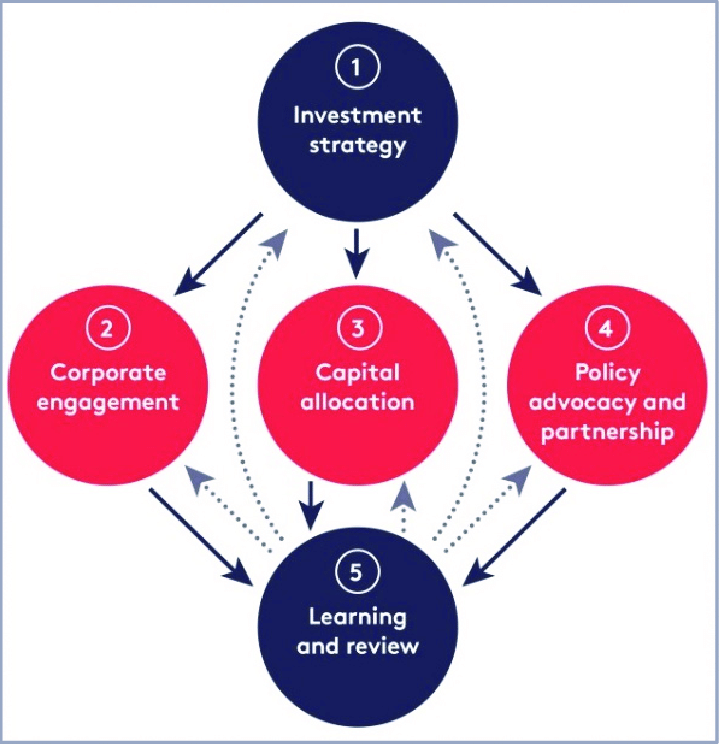The National Council on Climate Change Secretariat (NCCCS), in collaboration with the ILO, UNIDO, and UNDP, held a stakeholder workshop to develop Nigeria’s Just Transition Guideline.
The guideline aims to ensure a fair shift to a low-carbon economy by protecting workers and communities.
As well as protecting those reliant on fossil fuels, while promoting sustainability, inclusion, and resilience.
NCCC Director-General, Dr. Nkiruka Maduekwe, emphasized the need for an inclusive approach that aligns with President Bola Tinubu’s Renewed Hope Agenda.
She said it should focus on job creation, economic growth, and social equity.
She highlighted that climate policies must prioritise people, livelihoods, and green job opportunities.
As we engage today, we must recognise that this transition is not just about technology and policy—it is about people, livelihoods, and the future of our workforce.
“It is about creating green jobs, investing in skills development, protecting vulnerable communities, and ensuring economic opportunities for all,” she said.
Prof. Emmanuel Oladipo underscored the need for behavioral change, capacity building, and an equitable move away from fossil fuels.
ILO’s Steven Aguguo reaffirmed the organization’s commitment to a just and inclusive energy transition.






Can you write more about it? Your articles are always helpful to me. Thank you! http://www.kayswell.com
I’m so in love with this. You did a great job!! http://www.hairstylesvip.com
Sustain the excellent work and producing in the group! http://www.kayswell.com
Great content! Super high-quality! Keep it up! http://www.kayswell.com
You’ve the most impressive websites. http://www.hairstylesvip.com
The articles you write help me a lot and I like the topic http://www.kayswell.com
Thank you for your articles. They are very helpful to me. May I ask you a question? http://www.hairstylesvip.com
Thanks for your help and for writing this post. It’s been great. http://www.hairstylesvip.com
Your articles are extremely helpful to me. Please provide more information! http://www.kayswell.com
I’m often to blogging and i really appreciate your content. The article has really peaks my interest. I’m going to bookmark your website and hold checking for brand spanking new information.
I appreciate, cause I found exactly what I was looking for. You have ended my four day long hunt! God Bless you man. Have a nice day. Bye
Your articles are extremely helpful to me. May I ask for more information? http://www.kayswell.com
I’d like to find out more? I’d love to find out more details. http://www.ifashionstyles.com
Thanks for posting. I really enjoyed reading it, especially because it addressed my problem. http://www.hairstylesvip.com It helped me a lot and I hope it will help others too.
Your articles are extremely helpful to me. Please provide more information! http://www.kayswell.com
Thanks for the suggestions you have discussed here. Moreover, I believe there are several factors which really keep your car insurance policy premium straight down. One is, to consider buying automobiles that are from the good report on car insurance companies. Cars which might be expensive are usually more at risk of being lost. Aside from that insurance coverage is also using the value of the car, so the more costly it is, then the higher the actual premium you spend.
May I have information on the topic of your article? http://www.kayswell.com
I am very happy to read this. This is the type of manual that needs to be given and not the random misinformation that’s at the other blogs. Appreciate your sharing this greatest doc.
Thanks for your feedback
You are a very smart individual!
I have noticed that in digital camera models, special receptors help to aim automatically. The particular sensors connected with some surveillance cameras change in contrast, while others work with a beam with infra-red (IR) light, particularly in low lumination. Higher standards cameras occasionally use a mix of both methods and may have Face Priority AF where the digicam can ‘See’ some sort of face while focusing only in that. Thanks for sharing your thinking on this website.
After study a couple of of the blog posts in your website now, and I truly like your manner of blogging. I bookmarked it to my bookmark website listing and will be checking back soon. Pls check out my web page as nicely and let me know what you think.
Thanks for posting. I really enjoyed reading it, especially because it addressed my problem. http://www.hairstylesvip.com It helped me a lot and I hope it will help others too.
Great beat ! I would like to apprentice while you amend your web site, http://www.hairstylesvip.com how could i subscribe for a blog site? The account helped me a acceptable deal. I had been a little bit acquainted of this your broadcast provided bright clear concept
You helped me a lot by posting this article and I love what I’m learning. http://www.kayswell.com
Thank you for writing this post. I like the subject too. http://www.kayswell.com
Your articles are extremely helpful to me. May I ask for more information? http://www.kayswell.com
I’m so in love with this. You did a great job!! http://www.kayswell.com
The articles you write help me a lot and I like the topic http://www.kayswell.com
Good to hear our post is of help to you. That is the primary goal of Core Truth and we are glad that it is fulfilling purpose.
May I have information on the topic of your article? http://www.kayswell.com
I enjoyed reading your piece and it provided me with a lot of value. http://www.kayswell.com
I don’t think the title of your article matches the content lol. Just kidding, mainly because I had some doubts after reading the article.
Your articles are extremely helpful to me. Please provide more information! http://www.kayswell.com
Please tell me more about this. May I ask you a question? http://www.kayswell.com
The articles you write help me a lot and I like the topic http://www.kayswell.com
Thanks for the guidelines shared on the blog. Something else I would like to convey is that weight-loss is not exactly about going on a dietary fads and trying to reduce as much weight as you can in a set period of time. The most effective way in losing weight is by using it bit by bit and following some basic ideas which can provide help to make the most from the attempt to shed weight. You may be aware and already be following some of these tips, nevertheless reinforcing understanding never damages.
Your articles are extremely helpful to me. May I ask for more information? http://www.ifashionstyles.com
Thank you for your articles. http://www.ifashionstyles.com They are very helpful to me. Can you help me with something?
Your articles are extremely helpful to me. Please provide more information! http://www.ifashionstyles.com